Almost every writing job I come across lists specialization in a specific field as a requirement.
That makes sense - you want a writer who:
- Not only understands the audience and their problems, but is immersed in the community and feels the problem from their POV
- Someone who doesn’t sound naive about the topic and can contribute more than introductory information
- Someone who speaks the jargon fluently and blends well with industry leaders
I have been able to meet the intentions above, despite not specializing in any field as a full-stack content marketer.
- I’m not a medical writer but I have developed and scaled the production of authoritative medical content for a 6-figure e-commerce store
- I know nothing about construction but I have competed with top resources for a community-focused niche
- I’m not an EDM producer or a holistic healer but I have developed in-depth review courses that are rooted in each community’s desires, aspirations, and “meta”
Specialization is not a requirement for good content.
What I lack in years of experience in any given field, I make up for with intensive research, participating within the community, and identifying the “story ecosystem” of end-users.
Here are some examples:
How I wrote medical articles for dermatologists and aestheticians - and helped an e-commerce brand scale to $100k MRR with content
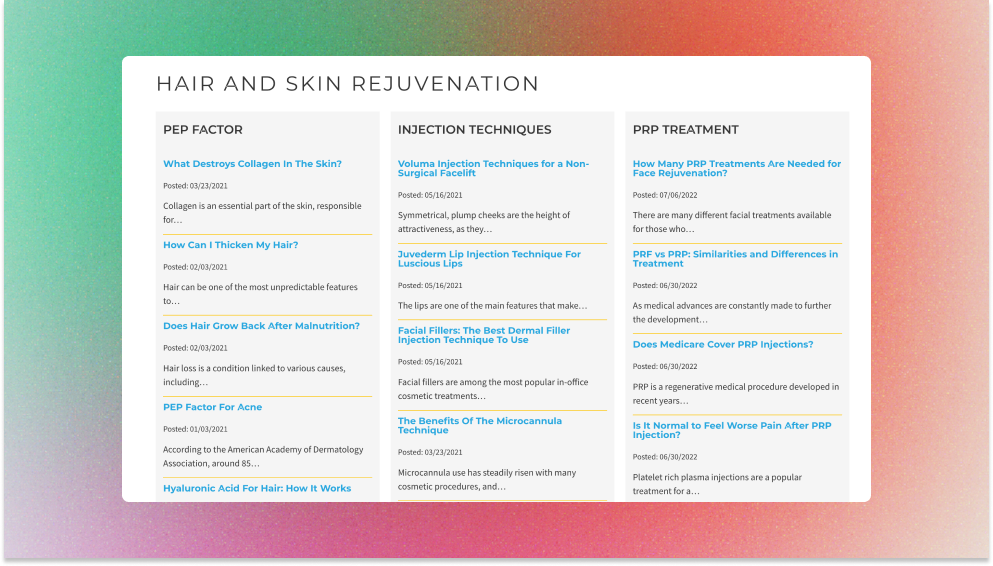
Project and target audience
Face Med Store is an e-commerce brand selling a wide-range of dermatology paraphernalia and courses. Full case study here.
Their customer base and audience are primarily dermatologists, medical aesthetics spa owners, as well as aspiring professionals looking for formal training in medical aesthetics.
How to write like a native
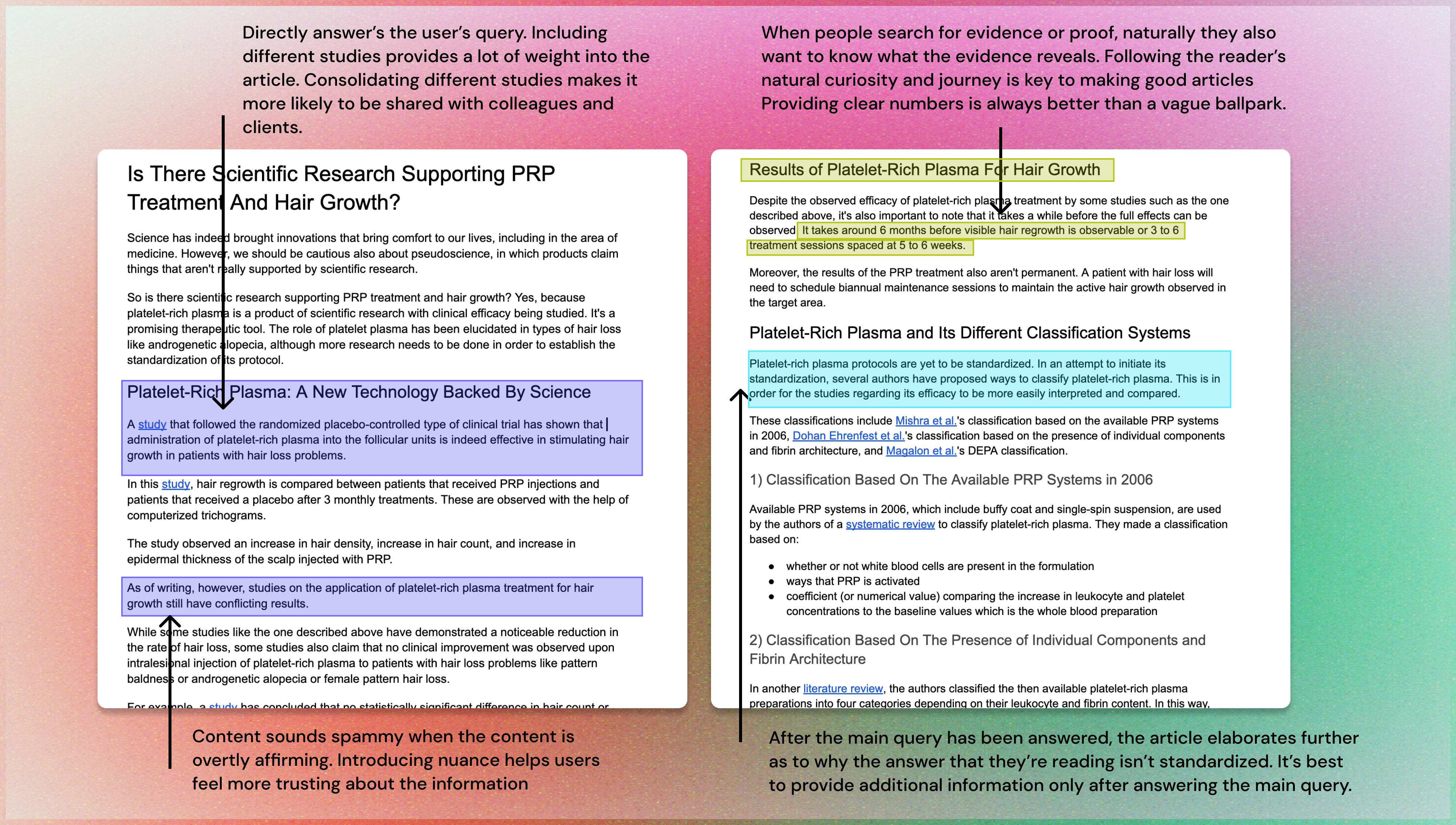
Understand the user’s stage of awareness
What’s the search intent behind the content? At what point would users be looking for this information? I make sure the content reflects the user’s stage in the information journey - is this topic an introduction? Is it specific enough that they are looking for a very specific query?
Is this angled towards newcomers to the industry or veterans looking for nuanced opinion from peers?
Reflect nuanced industry opinions
Unless you’re positioning your brand as being for a specific solution, embracing nuance is a great way to build trust.
When queries come back with non-conclusive answers, we clearly state why they were non-conclusive.
This builds trust within the community because it reflects the reality of medical journals. Being overtly affirming in content is especially impractical and unrealistic in technical fields.
Provide value by answering “what next?”
Users feel most understood when the content flow reflects their own curiosity. I look into what questions they might be asking next, or what supporting information they need to get the most value out of a specific inquiry or question.
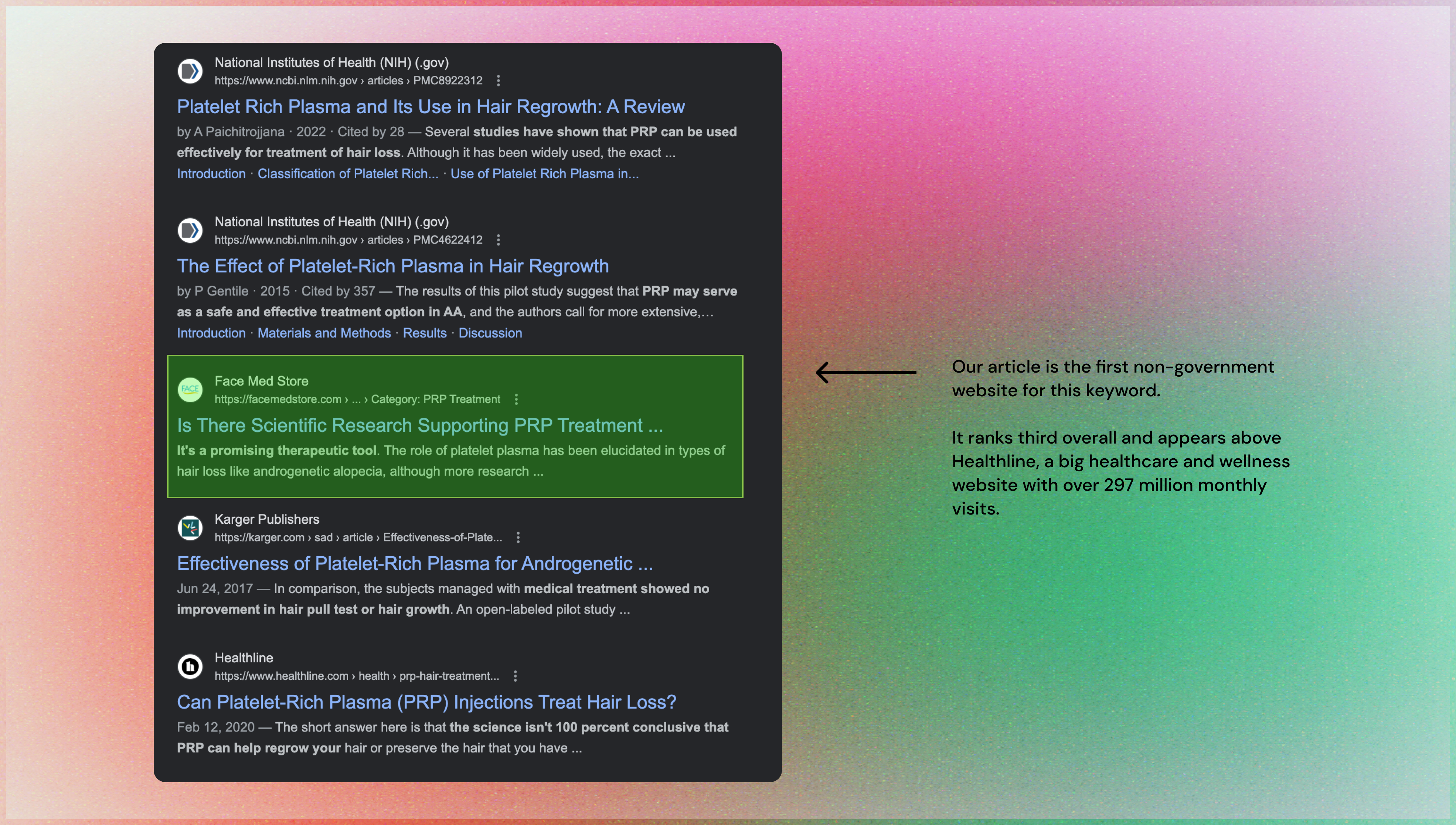
How I competed with top tiny house resources, won SERPs and featured snippets, despite knowing nothing about tiny houses or how to build them
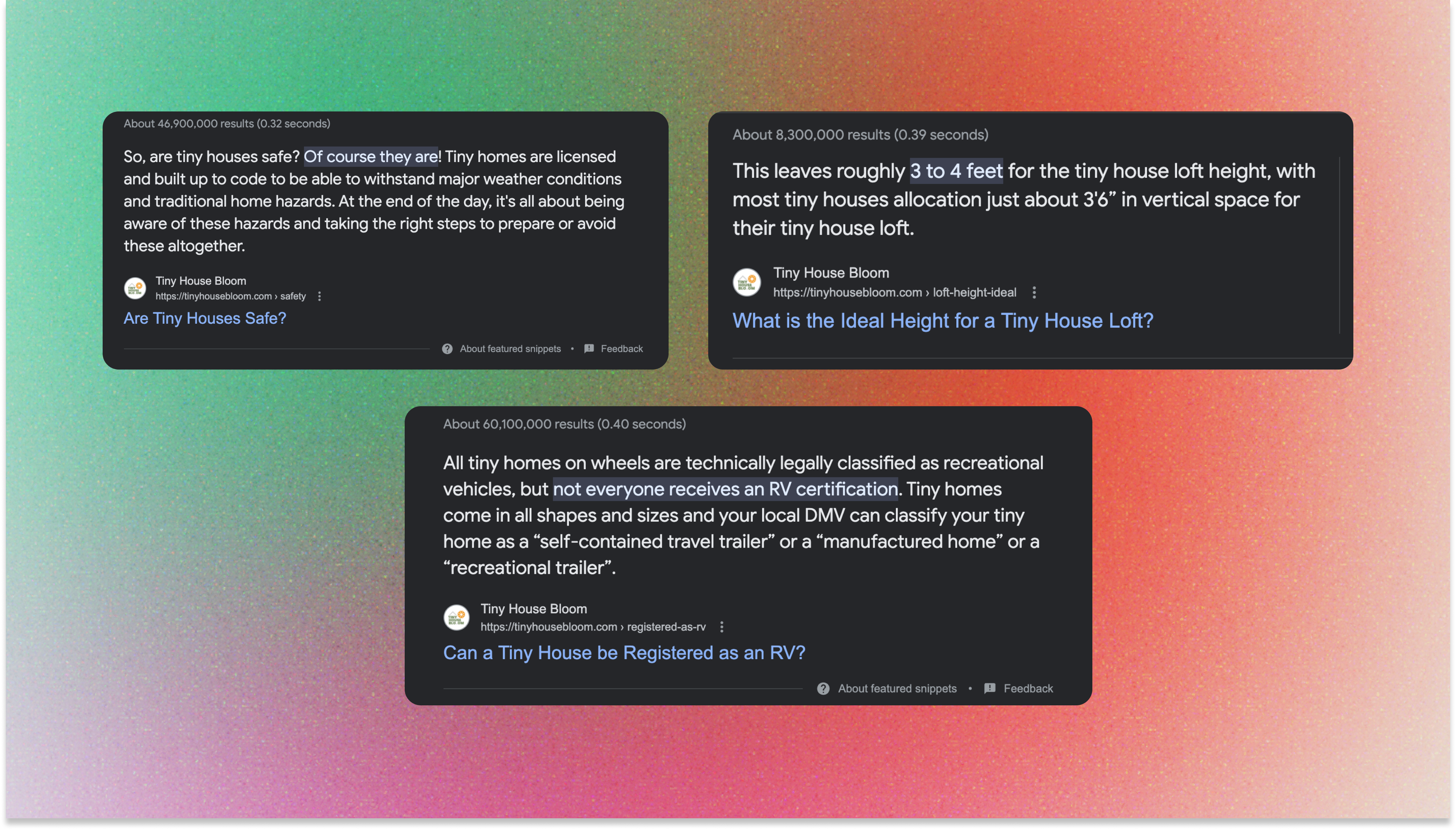
Project and target audience
Tiny House Bloom was a personal affiliate marketing project I shared with an SEO developer. We saw the amazing results from our clients, and wanted to replicate the revenue for ourselves.
Our target audience were people who were interested in building their own tiny house - and wanted actionable, practical answers to their queries on construction, federal regulations, and more.
How to write like a native
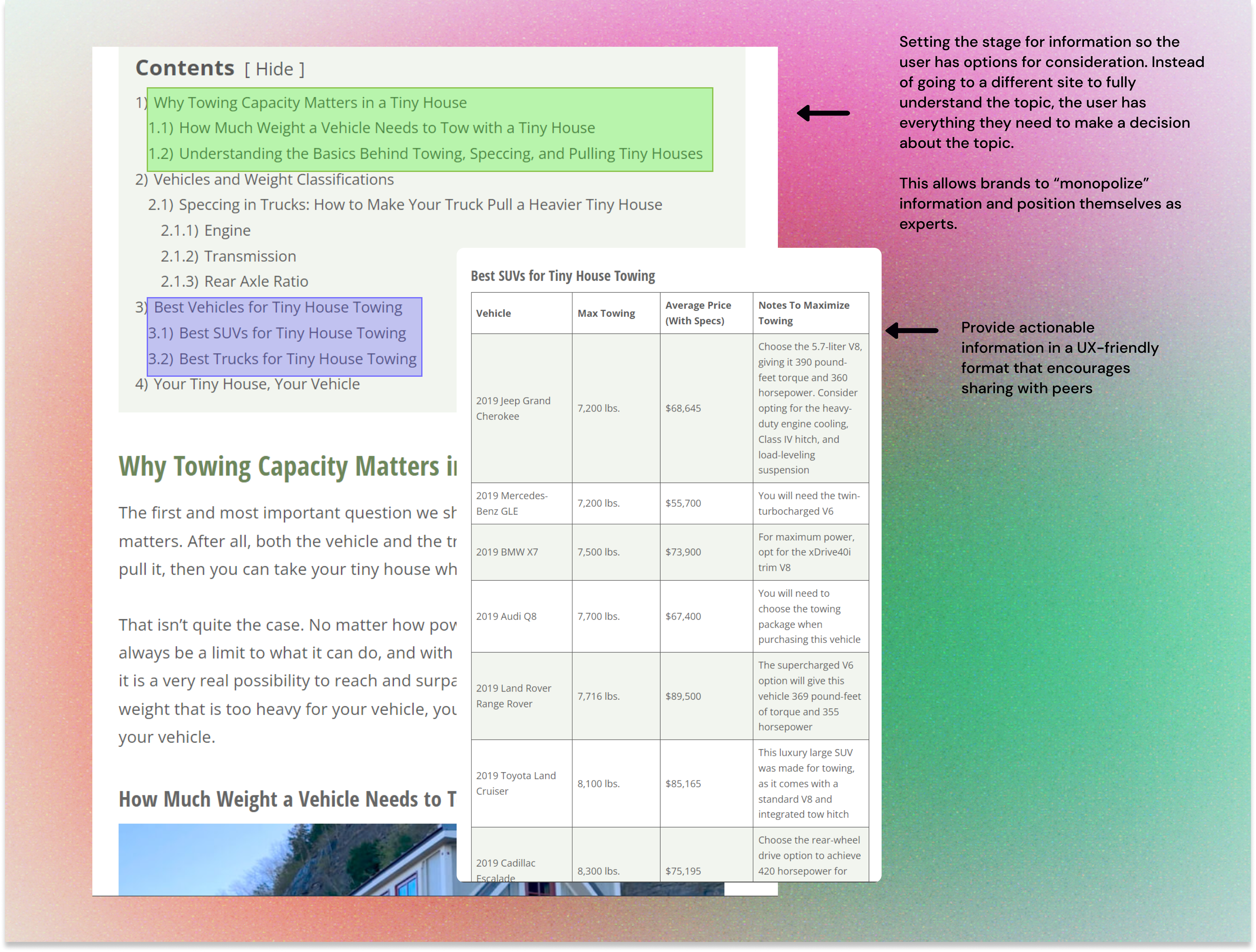
Join spaces where the community gets their information, which peers they trust, and why
The blogs and forums of competitor blogs were ripe with content ideas. The comment section of Youtube videos reveal a lot about what users are looking for in their content.
Hanging out where your target audience hangs out is a shortcut to understanding their problems - and explicitly the language they use to describe these problems.
Use headers that reflect the user’s journey
Our content list evolved with our existing articles. Because our target audience consisted of DIYers and people who needed concrete, actionable information to build their tiny homes, we approached articles with a “what information would they need for this to make sense, and what information would they need next?” mindset.
This helped us create interconnected articles with information that fed off each other. We eventually had an ecosystem of articles that supported each other.
We identified information gaps within our articles, and instead of writing a whole section on it, we developed a dedicated article that aimed to answer that more completely.
Why is it impressive to win SERPs and featured snippets?
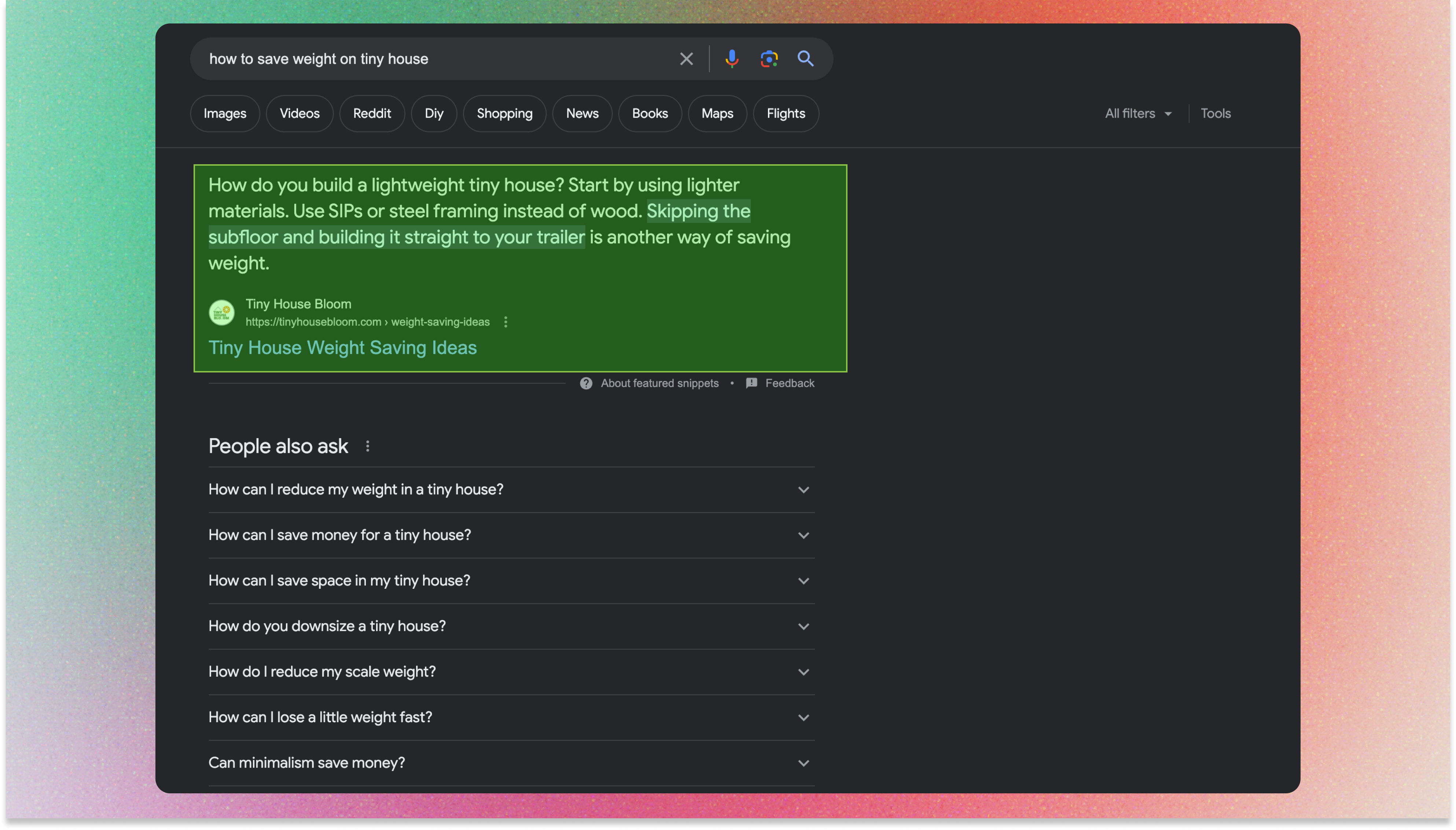
Featured snippets are short texts that show at the top of Google’s search results to quickly answer a searcher’s query.
This is great because it’s the very first piece of content that Google shows searchers. Repeated featured snippets help users associate your website as helpful and authoritative.
Majority of the featured snippets in this category come from instructional Youtube videos or the blogs of tiny house owners who are sharing their personal journeys. It’s competitive because:
- Content type (videos, articles, audio) is prioritized based on user intent. Blogs are harder to rank for queries that are instructional because video is the preferred format
- The top tiny house blogs are typically builders themselves; community engagement is strong for these websites
It’s difficult to break into a community-built industry as “outsiders”. Ranking on SERPs and featured snippets = a signal that something you’re assimilating properly.
You don’t have to be native to the community to write for them and earn their trust. You just need to sound like them.
How I wrote in-depth, hyperspecific course reviews for Masterclass and Mindvalley classes, despite not being a part of those communities
Project and target audience
I developed a series of in-depth course reviews for e-learning platforms Masterclass and Mindvalley. Full case study here.
The courses are aimed towards hobbyists and community-members of different circles such as finance literacy, EDM production, and holistic wellness.
How to write like a native
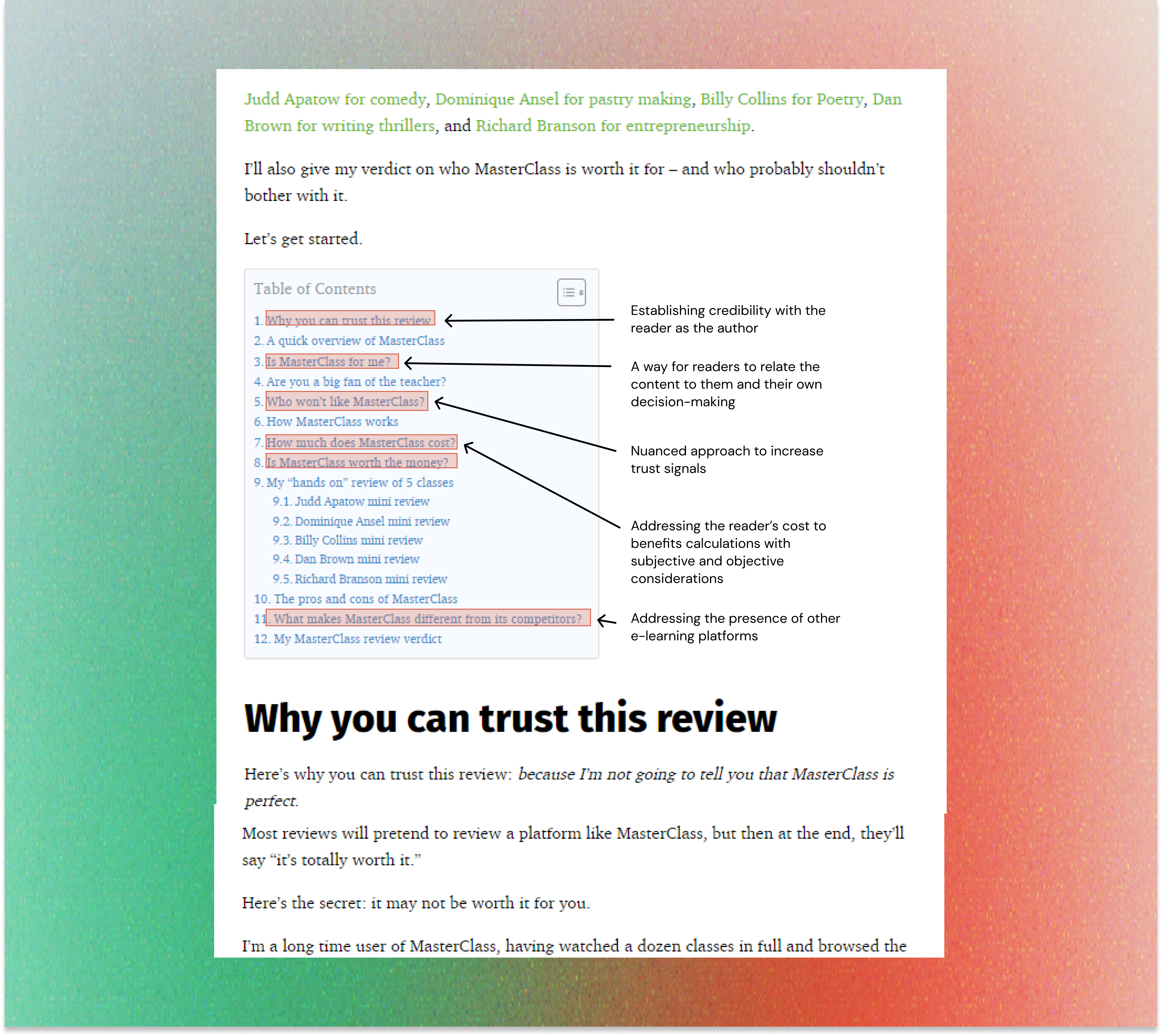
Embrace the community meta
No community is in complete unison. There will always be popular dissenting opinions in a community. Echoing their frustrations helps you “blend in” and sets the stage for the brand, author, or poster as being part of the community.
This is especially relevant in online forums where users are becoming more savvy to astroturfers and GPT-generated responses.
Speak openly about their insecurities, reservations, and objections
Users convert when they feel like their problems are completely understood. What are their reservations in subscribing to the service? What are their considerations? What do they need to trust that this content has their best interests at heart?